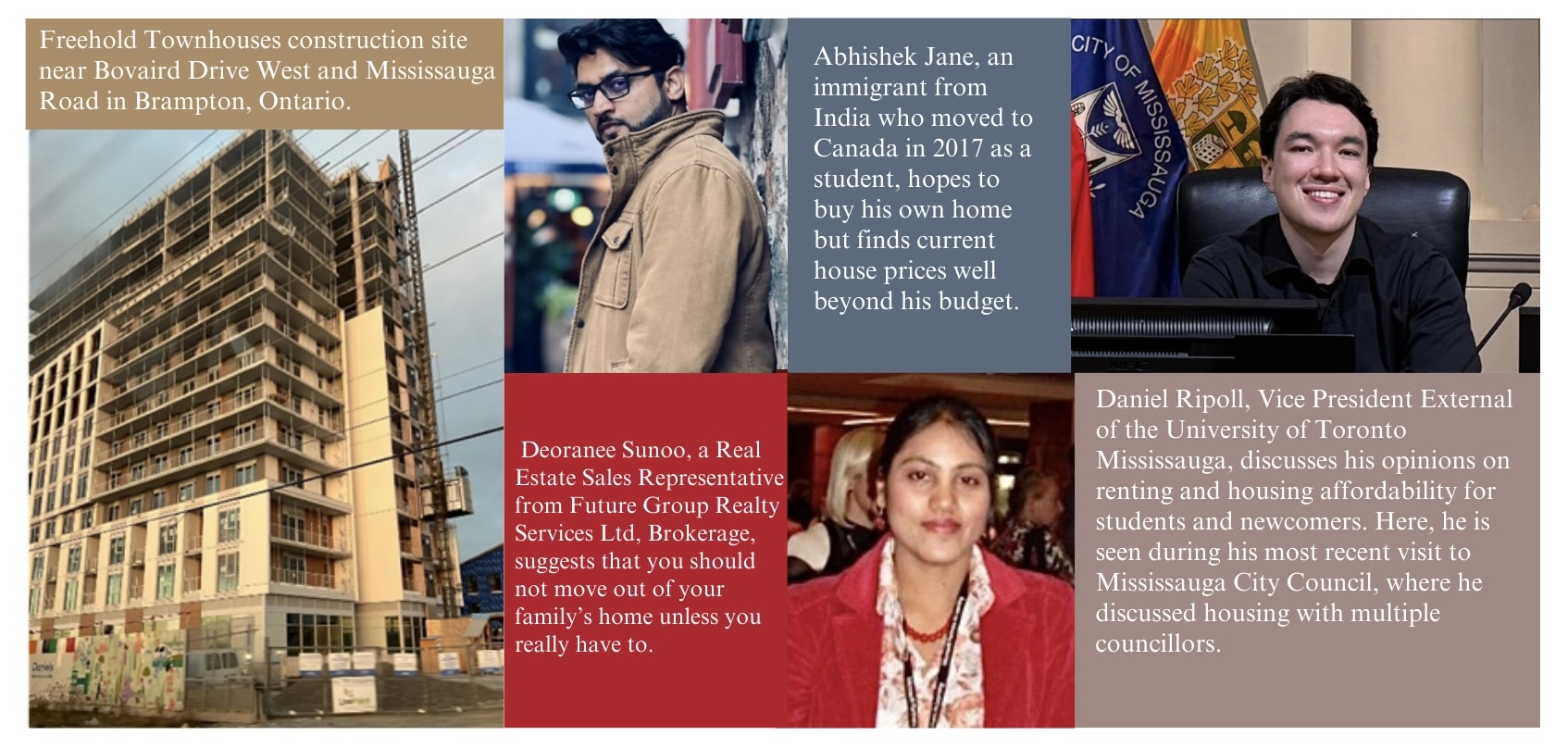From renting to owning, it is all about overcoming the housing crisis in Ontario.
Experts including Real Estate Sales Representative Deoranee Sunoo acknowledge the challenges of buying a home in today’s Canadian housing economy.
Abhishek Jane dreams of owning his own home. Though he has worked hard to pursue a Canadian education, save for a down payment, and explore various jobs to advance his career, economic challenges have made it difficult to reach that goal.
Jane, married and 32, considers Milton, Ontario, his preferred home address but had to rent an apartment in Mississauga as he works as a senior insurance operations representative at the Royal Bank of Canada’s Meadowvale office. He and his wife now earn a joint income of C$150,000 and want to buy a house but face challenges, including high inflation, stagnant wages, and rising house prices.
“Saving is not enough, it’s like you [are] putting money in the piggy bank—it just stays there, and [its] value does not change,” he said in an interview with The Medium.
Jane would like to buy a detached home or freehold townhouse within a budget of C$700,000 to C$800,000. His priorities include safety, security, and accessibility to essential services and main areas, mainly locations like Milton, Guelph, Cambridge, and communities east of the Greater Toronto Area (GTA), which are particularly attractive.
Jane has carefully managed his finances, focusing on savings and low-risk investments. He leans toward secure investment options such as Guaranteed Investment Certificates, government bonds, and conservative mutual funds, preferring to balance growth with financial security.
Jane’s advice for renters considering the shift to homeownership focuses on three main pillars: managing debt responsibly, investing savings wisely, and aiming for income growth.
“Keep your debts in check. Do not overspend. Do not go dig deep in debts,” he recommended.
_
In an interview with The Medium, Daniel Ripoll, the vice president external of the University of Toronto Mississauga Students’ Union, highlighted the complex challenges students face with renting and owning homes in Mississauga.
“It’s never been cheaper to buy a condo, but that’s still around C$500,000,” he explained. “I don’t think any student has that lying around.” For students, renting is often the only viable option, yet even rental rates have surged dramatically. Ripoll pointed out, “Median rent has gone up by 20 to 30 per cent in the past two to three years.”
Students often encounter resistance from landlords who are hesitant to rent to them. “A lot of realtors will straight up tell you ‘No students,’” Ripoll noted, sharing that even when students meet rental qualifications, revealing their student status often results in a rejection. “This is a problem we’vebeen experiencing for a long time,”he added, especially for international students and newcomers.
In response to these issues, Ripoll suggests more regulated housing solutions. “One thing we’re trying to work on is creating more student co-op housing,” he explained, as well as collaborating with the city to establish safer, regulated rooming arrangements. “If we could just add a few more regulations like fire exits and proper bathroom ratios, it could work.”
Ripoll hopes that these steps will make housing more accessible and affordable for students struggling to find a stable place to live.
_
According to real estate expert Deoranee Sunoo, prospective buyers like Jane face unprecedented challenges when it comes to buying a home, especially in cities like Brampton and Mississauga, where housing prices have more than doubled over the last decade. Homes in these areas were once around C$500,000, but now, the average price is closer to one million dollars.
In an interview with The Medium, Sunoo noted that while the market has cooled slightly post-pandemic, prices remain high, and buyers find it difficult to qualify for mortgages amid the high cost of living, high rates and mass immigration.
An interesting shift has emerged with some people opting for properties outside the GTA. Ontario cities like London and Windsor offer more affordable options compared to the GTA, making them attractive to buyers willing to commute or work remotely. “It’s hard for them to afford a home because the mortgage payments will reap up most of their income,” she stated.
Sunoo noted that some families even sublet part of their rental homes to offset costs, illustrating the creative strategies renters and prospective buyers are employing in today’s market.
The 30-year mortgage has recently gained attention as a potential solution for those struggling to meet high monthly payments. Sunoo explained that while this extended payment plan reduces monthly payments by about eight per cent, it means a longer commitment with added interest over time. This option may appeal to first-time homebuyers, but Sunoo cautions buyers to consider the financial implications of a longer-term mortgage carefully.
For current renters, such as Jane and students hoping to own a home, Sunoo suggests exploring government programs, such as the First Home Savings Account and the Home Buyer’s Plan, which provide tax advantages that can ease the path toward homeownership. She also recommends shared accommodations for single renters and maximizing savings to build a down payment fund.
Sunoo acknowledged that while owning a home is a long-held dream for many, financial readiness is crucial. “My advice will be, don’t move out unless you really have to—stay with your family and save your money.”


Brilliant article! 👏
Outstandingly written, thank you Yovarshee for highlighting the crisis within the housing market. We definitely need more voices to speak on this matter for a change.
This article was informative! Hopefully owning a house will be more affordable in the future.
Very insightful article !! I believe it is important that people are made aware of such challenges and risk when looking forward to purchase a property especially in the current economy and political setting.
Hopefully Canada’s Housing Plan successful increases supply of affordable homes.